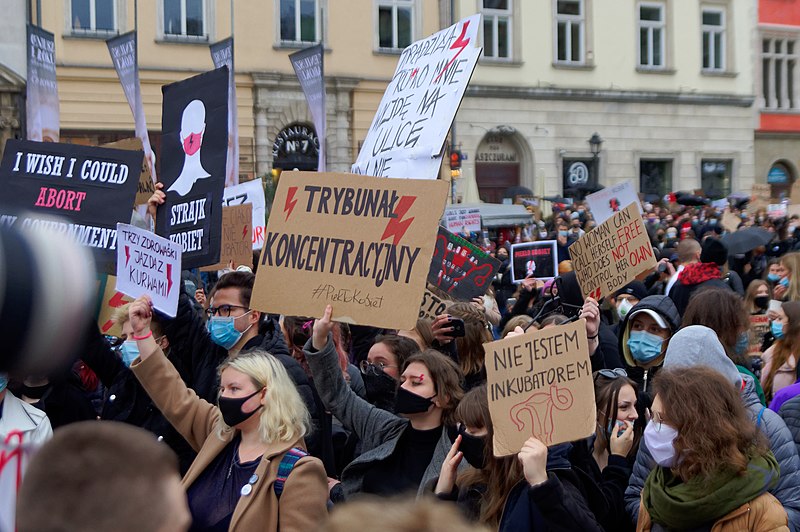Review by David Peace
On 30 October 2020, in defiance of anti-COVID-19 measures to restrict public gatherings, over 100,000 mask-clad demonstrators took to the streets of Warsaw to protest proposed changes to Poland’s abortion laws. Only a few days earlier, on 22 October, Poland’s constitutional tribunal ruled that abortions sought on the grounds of ‘foetal defects’ or ‘congenital malformations’ were ‘incompatible’ with Article 38 of the Polish Constitution. Consequently, abortion has now become only legally permissible in Poland in either cases of rape and incest, or where there is potential threat to a mother’s life or health, or instances of irreparable damage to a foetus. Reportedly, these cases represent only 2% of all legal terminations in Poland. As Dunja Mijatović, the Council of Europe’s commissioner for human rights, stated in a tweet shortly after the announcement, the new ruling has in effect removed the basis ‘for almost all legal abortions in Poland’ and amounts to ‘a ban and violates human rights.’ However, despite the days of protest marches across Polish cities and popular backlash against the ruling, Poland’s shift towards a curtailment of access to abortion services echoes a growing trend among traditionally Catholic European countries as populist parties in Slovakia, Hungary, Italy, Spain, and Croatia, seek to emulate the Polish legislative model to disrupt what they perceive to be the overt liberalisation of abortion as a reproductive right.
Leave a Comment
